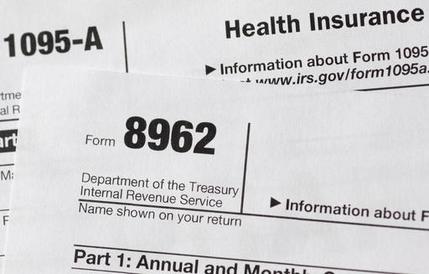- California Assembly OKs highest minimum wage in nation
- S. Korea unveils first graphic cigarette warnings
- US joins with South Korea, Japan in bid to deter North Korea
- LPGA golfer Chun In-gee finally back in action
- S. Korea won’t be top seed in final World Cup qualification round
- US men’s soccer misses 2nd straight Olympics
- US back on track in qualifying with 4-0 win over Guatemala
- High-intensity workout injuries spawn cottage industry
- CDC expands range of Zika mosquitoes into parts of Northeast
- Who knew? ‘The Walking Dead’ is helping families connect
Personalized IRS letters nudge uninsured to get coverage
WASHINGTON (AP) — If you haven’t signed up for health insurance, you may soon be getting a not-too-subtle nudge from the taxman. 
The IRS is sending personalized letters to millions of taxpayers who might be uninsured, reminding them that they could be on the hook for hundreds of dollars in fines under the federal health care law if they don’t sign up soon through HealthCare.gov. It’s an unusual role for a revenue-collection agency.
Fines are one of the most unpopular parts of the 2010 health overhaul, and there’s a high likelihood they’ll get repealed by Republicans, even if other parts of “Obamacare” survive. The administration is counting on IRS reminders to help sign up as many people as possible before open enrollment ends Jan. 31. That’s soon after officials hand off President Barack Obama’s signature program to a Trump administration committed to “repeal and replace.”
Letters bearing the IRS logo will be sent to an estimated 7.5 million people who either claimed an exemption from the law’s requirement that most Americans carry health insurance, or who paid a penalty for being uninsured during the 2015 tax year. The coverage requirement was included in the law as a way to get healthy people into the insurance pool, helping to keep premiums in check.
The penalty for this year could be $2,085 or more, depending on family size and income, says one draft version of the IRS letter. Another draft takes a somewhat different approach, leaving a blank space for the IRS to provide an individualized estimate of what the particular uninsured taxpayer might owe.
The drafts were obtained by The Associated Press. Although the administration has made no secret of the IRS role in open enrollment this year, officials have not responded to requests for copies of the actual letters.
Republicans say the whole thing is a waste of money. The campaign will cost about $4 million, say congressional aides.
“People receiving these letters have already made up their minds about Obamacare when they applied for an exemption or paid a penalty,” said House Ways and Means Chairman Kevin Brady, R-Texas. “They don’t want stock letters. They want better health care choices and lower costs.”
Supporters of the health care law say research has shown that many people who remain uninsured are still unaware that they can go to HealthCare.gov and qualify for government subsidies to help pay their premiums. Those subsidies were designed as tax credits, bringing the IRS into the picture. The IRS letters make the pitch:
“Most people who enroll in a plan through HealthCare.gov can find plans for $75 a month or less after financial help,” the letters say. “At HealthCare.gov, you can compare plans to find one that meets your needs and budget.”
While such low-cost plans are available, many people actually pay more, and the $75 figure doesn’t take into account deductibles and copayments. The average monthly premium last year for HealthCare.gov customers was $106, after financial help, according to the government. The administration has not released a comparable premium estimate for this year. Insurers raised their sticker prices significantly, but the law’s subsidies should cushion the impact for most HealthCare.gov customers.
About 800,000 letters went out after Thanksgiving, and an additional 6.7 million are going out now, according to congressional aides.
Last year about 6.5 million people paid fines for being uninsured, averaging $470, according to recent IRS data. The amount is generally deducted from a taxpayer’s anticipated refund. The fines started small in 2014, but are now fully phased in, starting at about $700.
The administration has a goal of signing up 13.8 million people for coverage this year and is looking for a strong finish to open enrollment season. Although the Affordable Care Act has reduced the nation’s uninsured rate to a historic low, it remains politically divisive.











